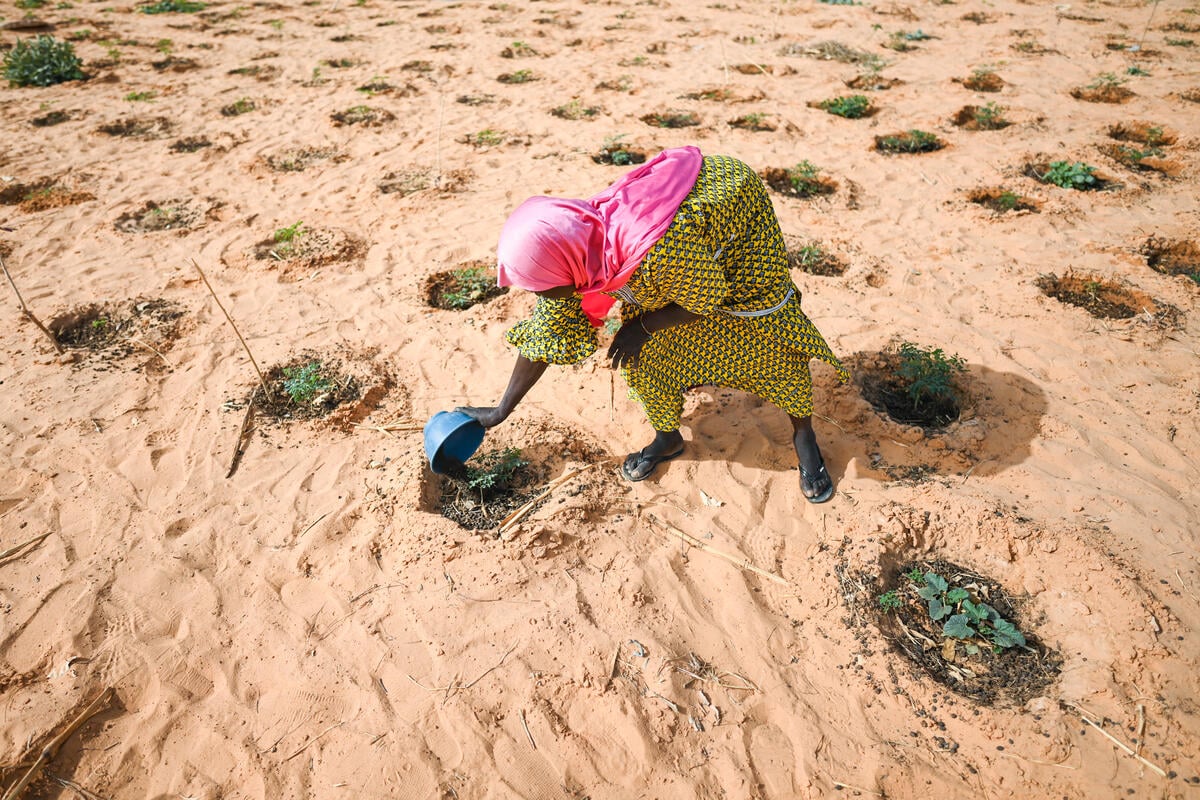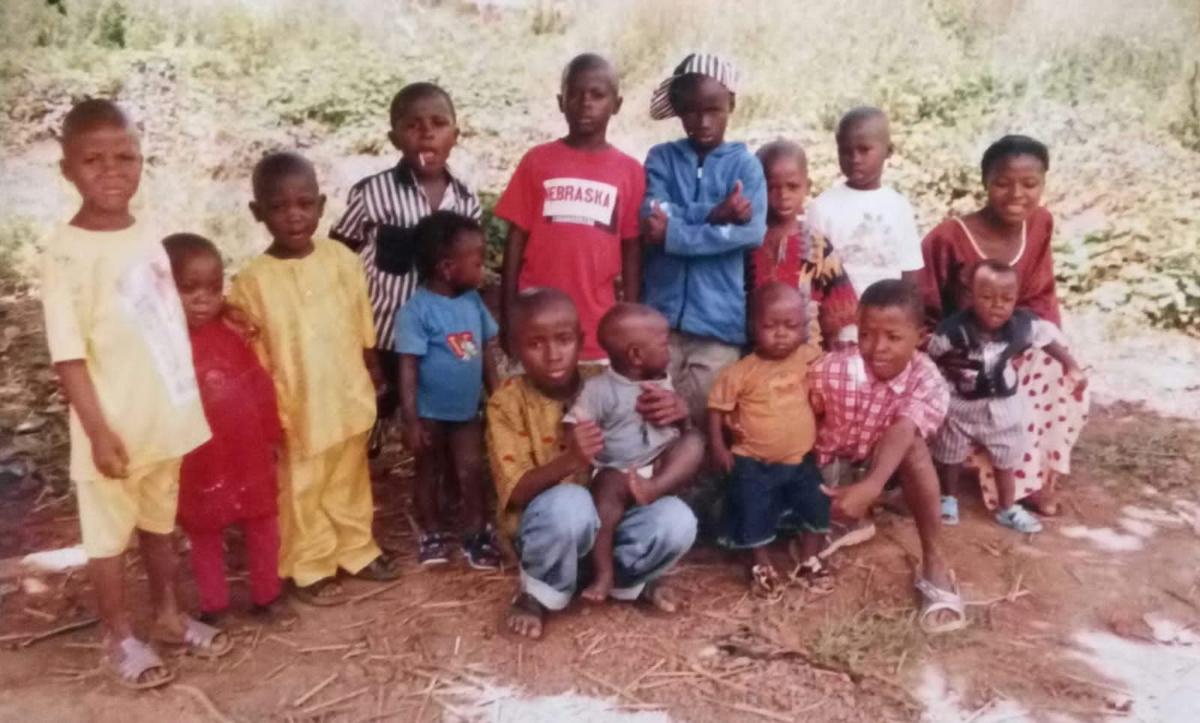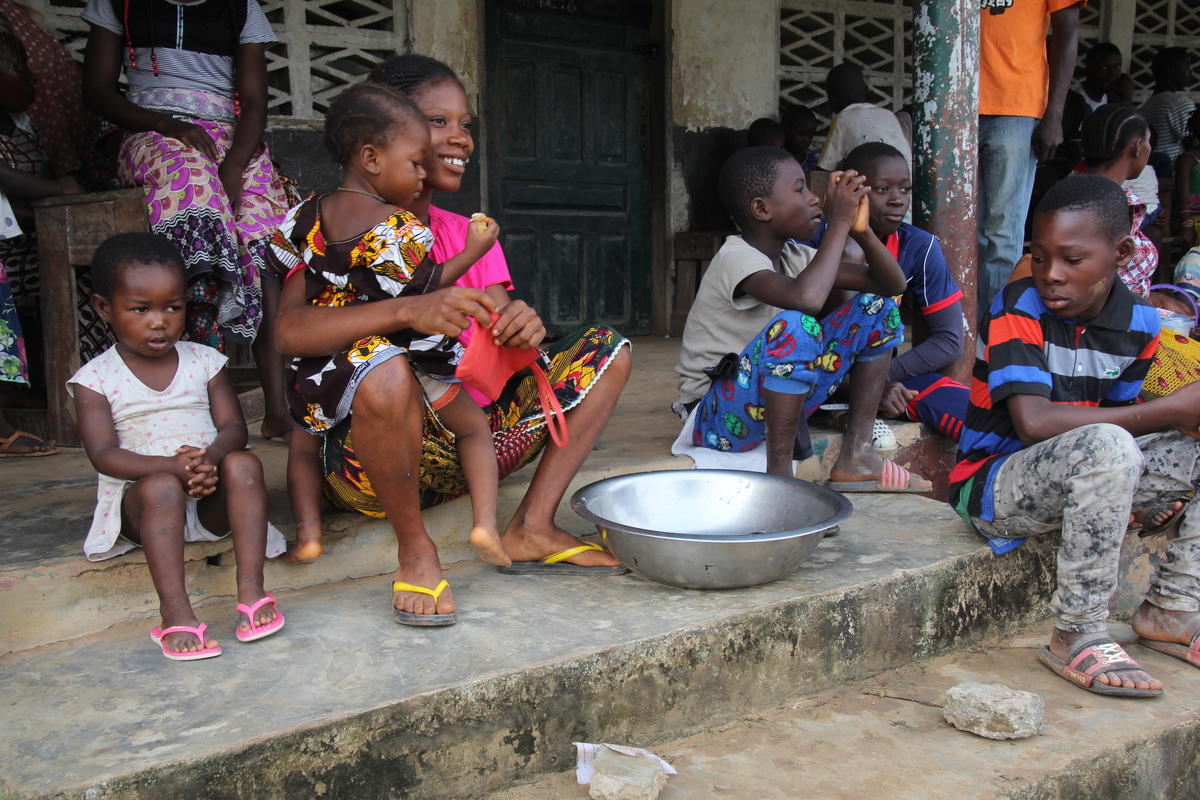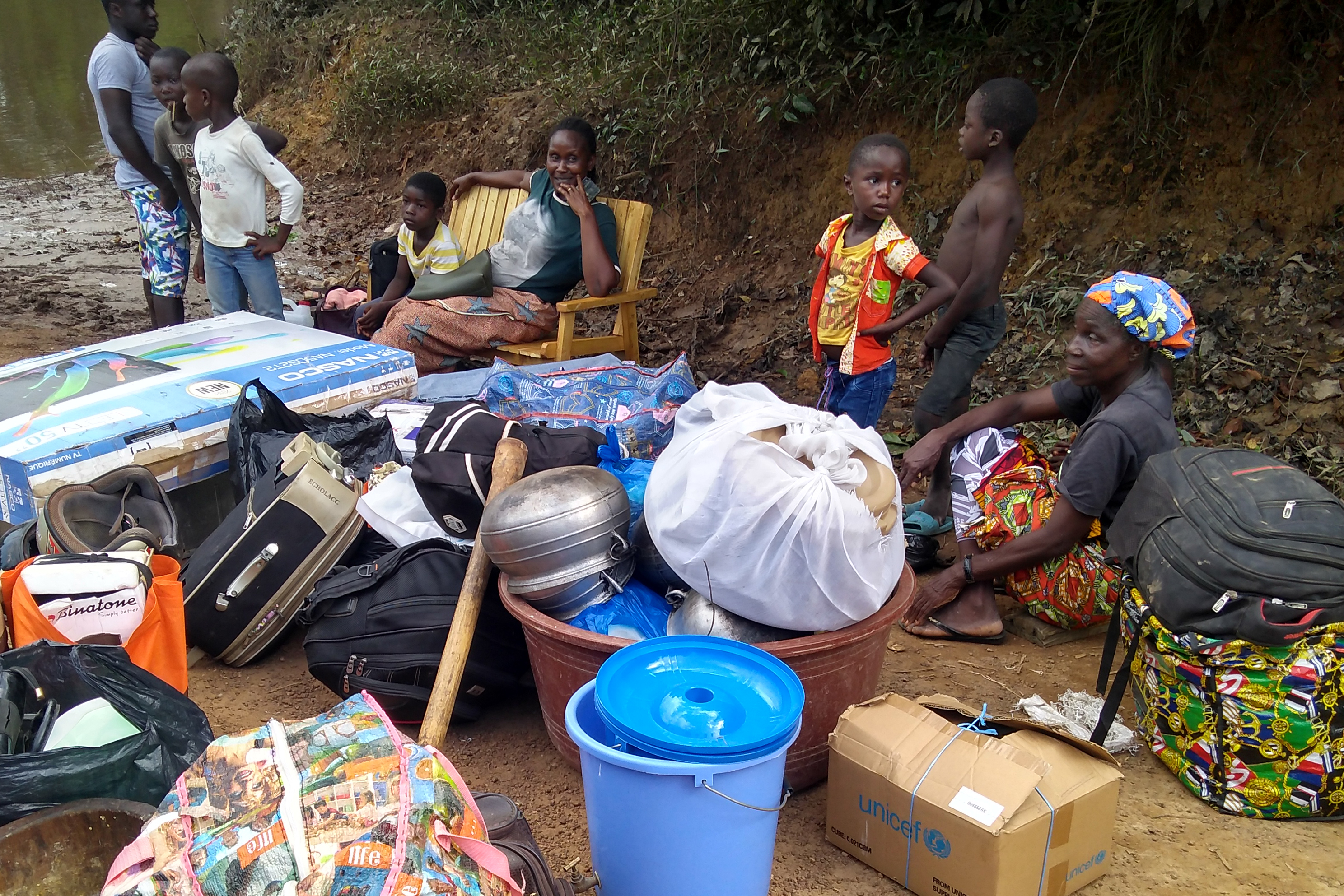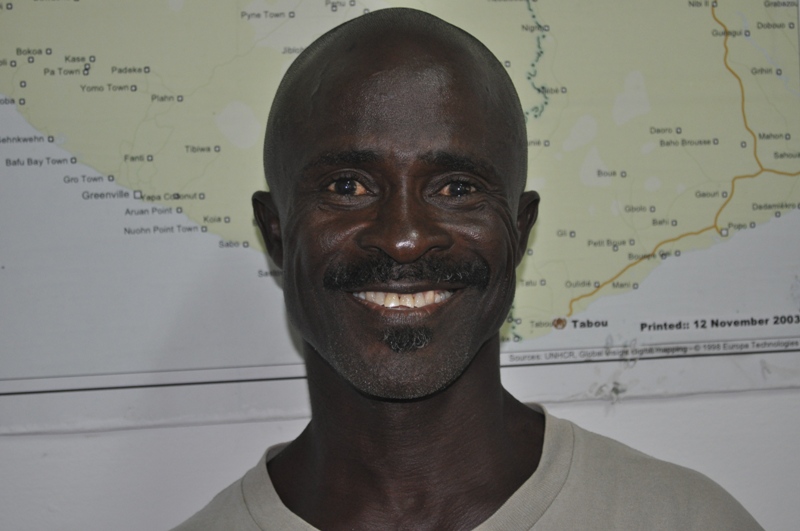Massive Guinea relocation set to start
Massive Guinea relocation set to start
UNHCR will start evacuating tens of thousands refugees from the Parrot's Beak region of Guinea next week in a massive relocation exercise expected to take a month. This volatile area of southern Guinea, bordering Liberia and rebel-held areas of Sierra Leone, has been largely inaccessible to regular humanitarian assistance for months. Up to 50,000 refugees from Sierra Leone and Liberia are still believed stranded in camps close to the borders and many of them want to leave. The massive relocation exercise has been planned for weeks and has received the full support of the Guinean government. We are confident the necessary security and protection standards are in place to ensure the safety of refugees and humanitarian workers.
The first evacuation convoy, scheduled for Monday, will pick up vulnerable refugees in Kolomba, the furthest camp at the tip of the Parrot's Beak near the border with Sierra Leone. Subsequent convoys will run regularly until all refugees wishing to be relocated from Kolomba are evacuated. There are an estimated 30,000 refugees in the camp, mostly Sierra Leoneans. Later convoys will then pick up refugees from other camps in the Parrot's Beak.
Kolomba's population has increased in recent months as refugees from other settlements as well as local people have fled fighting and instability in the region. UNHCR will transport the refugees to one of the new relocation sites we've recently opened to the north, away from the border. So far, more than 30,000 refugees have been relocated from other camps along the fringes of the Parrot's Beak to three sites in Albadaria and Dabola Prefectures. A fourth site in Albadaria is due to receive its first refugees today. In total, six new sites have been agreed by Guinean authorities, with a total capacity of 100,000 refugees.
Taking refugees to safety by relocating them to one of the new sites away from the borders has always been a priority for UNHCR. Now we have an opportunity to gain access refugees who have been stranded by conflict in fragile border areas. UNHCR is hoping to move these refugees within a month.
All the necessary resources have been mobilised and a special contingent of 250 civilian and military staff has been assigned by the government of Guinea to assist in the evacuation operation. These include military and police personnel, social and humanitarian affairs teams as well as a protection unit. They will be responsible for sensitising the local population, ensuring safe access for humanitarian organisations and safe passage for refugees, and escorting the convoys and patrolling the areas where the movements will take place.


